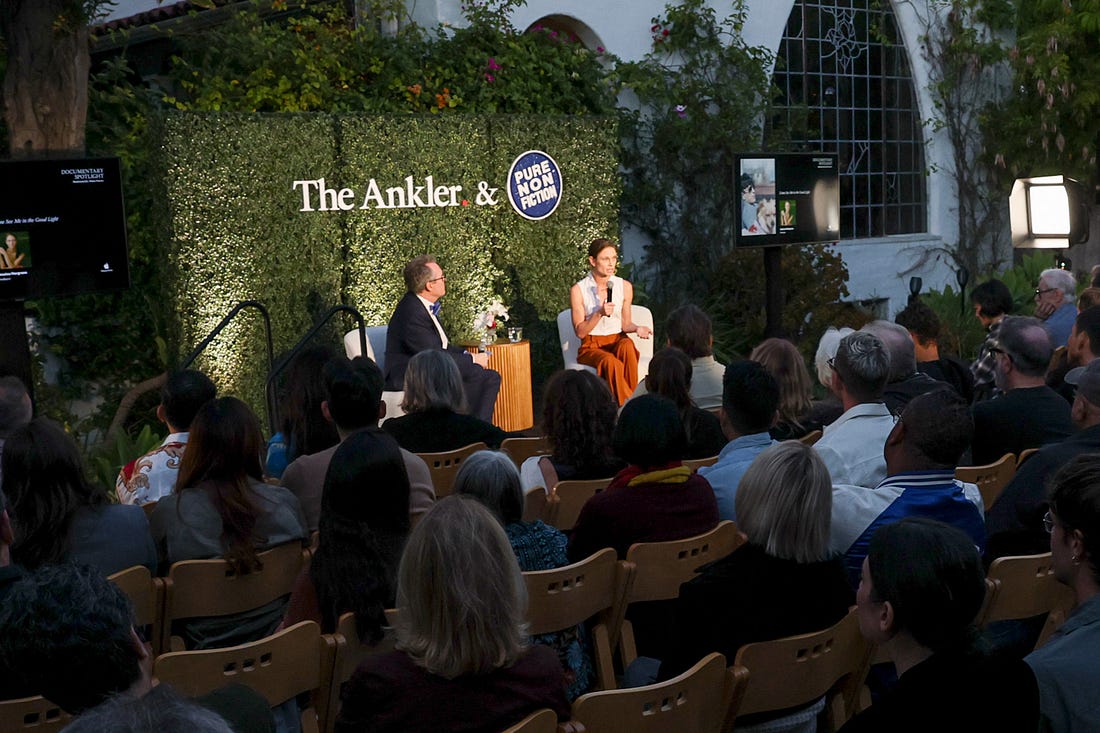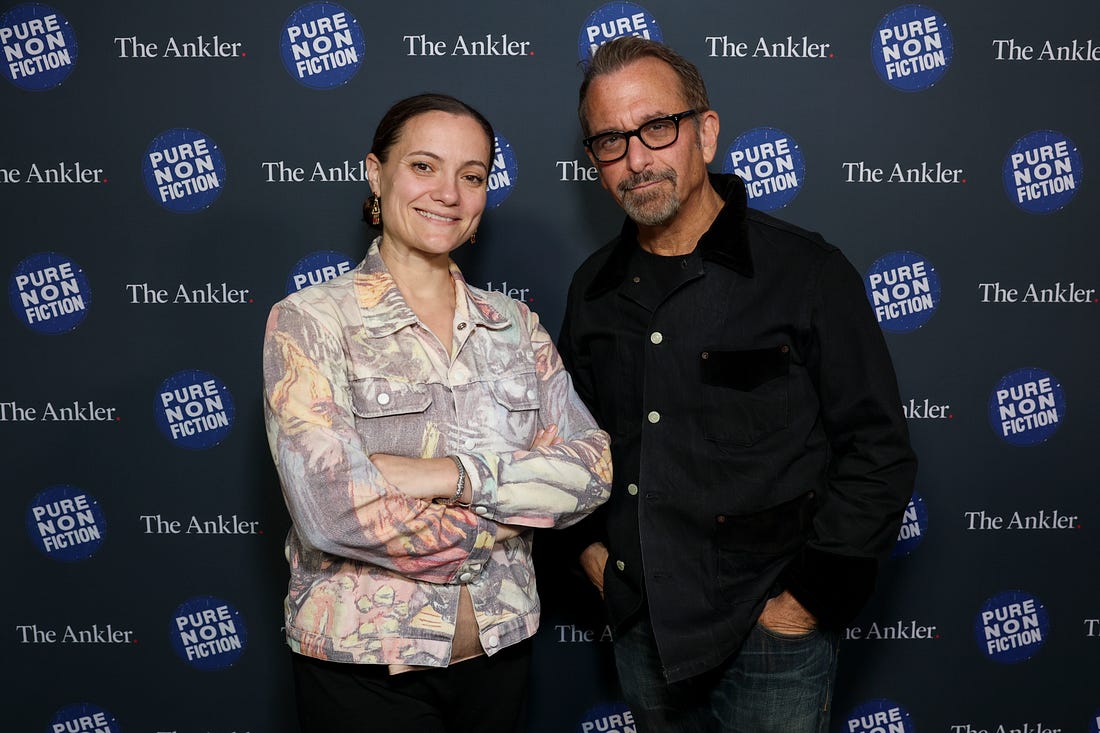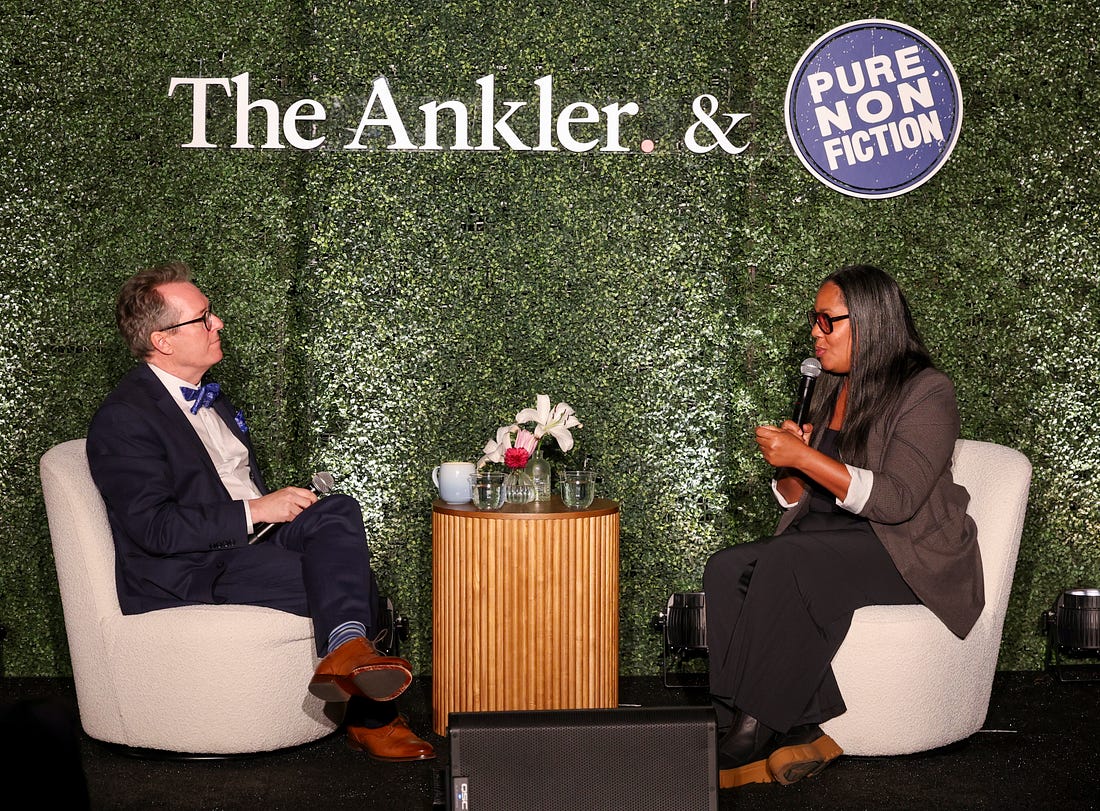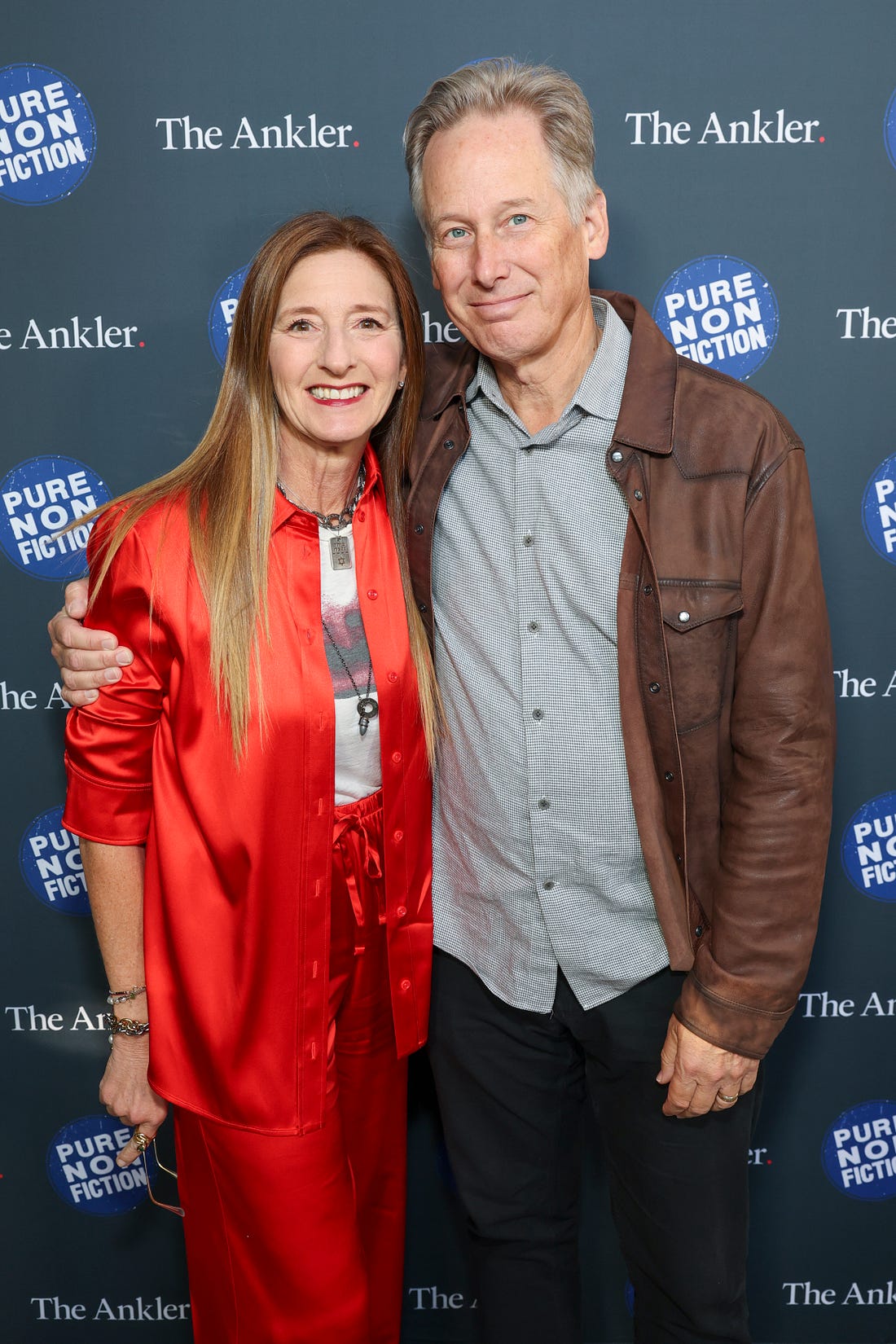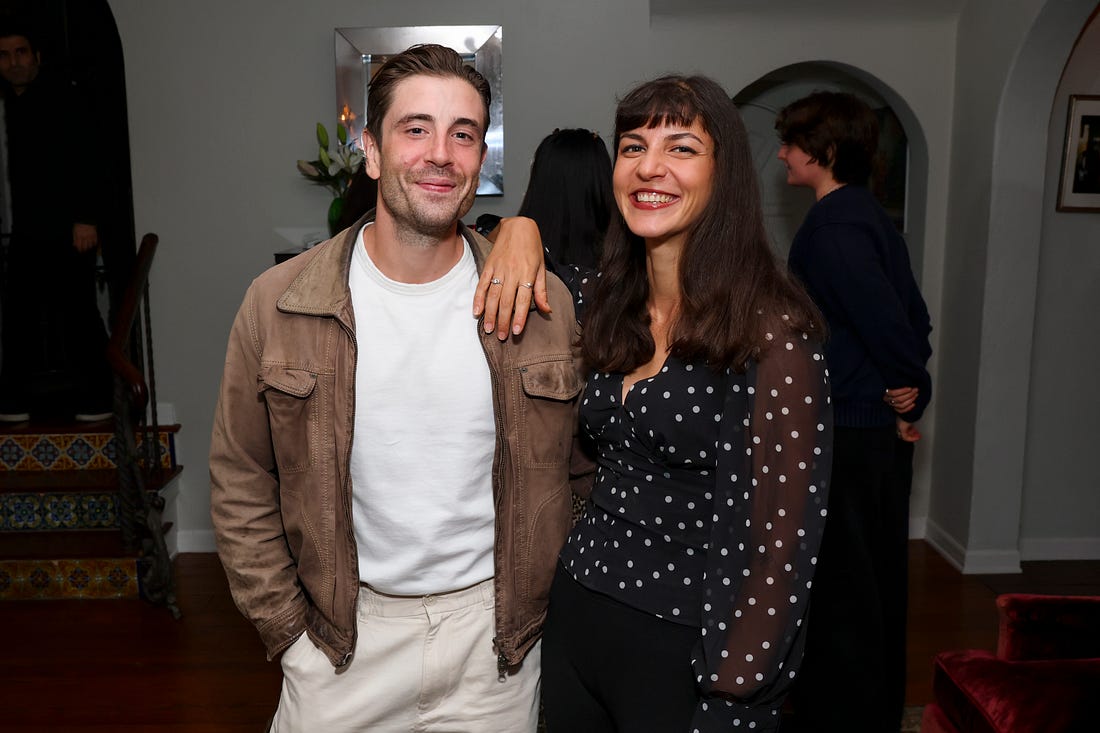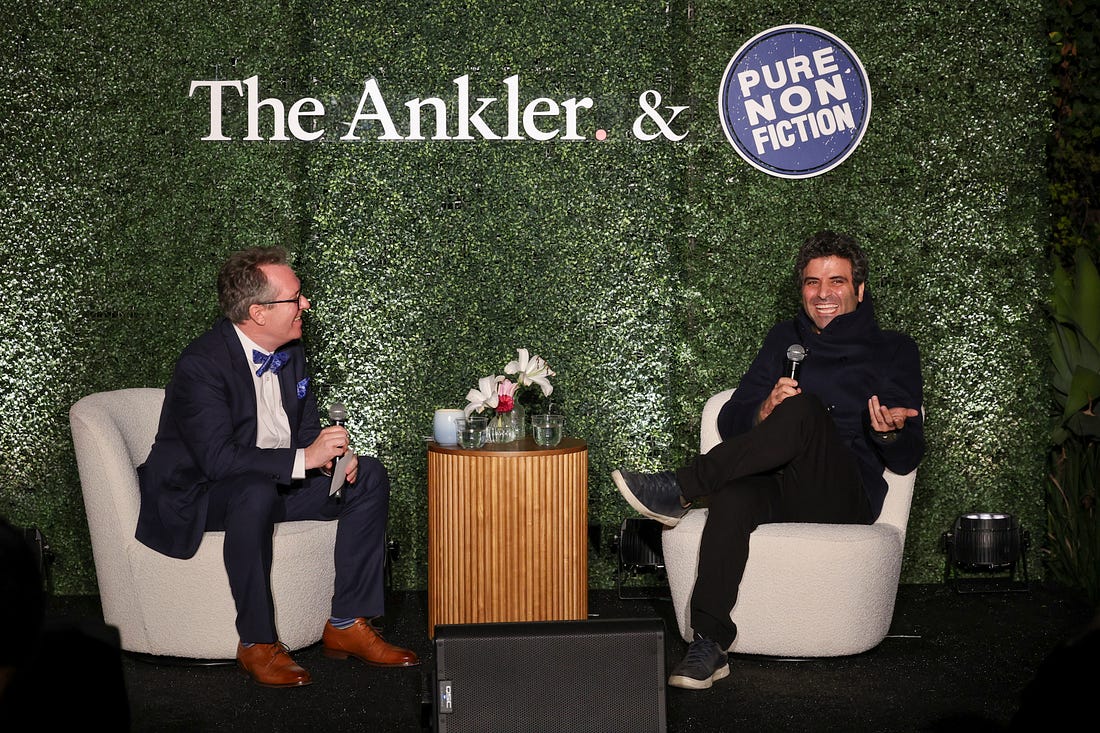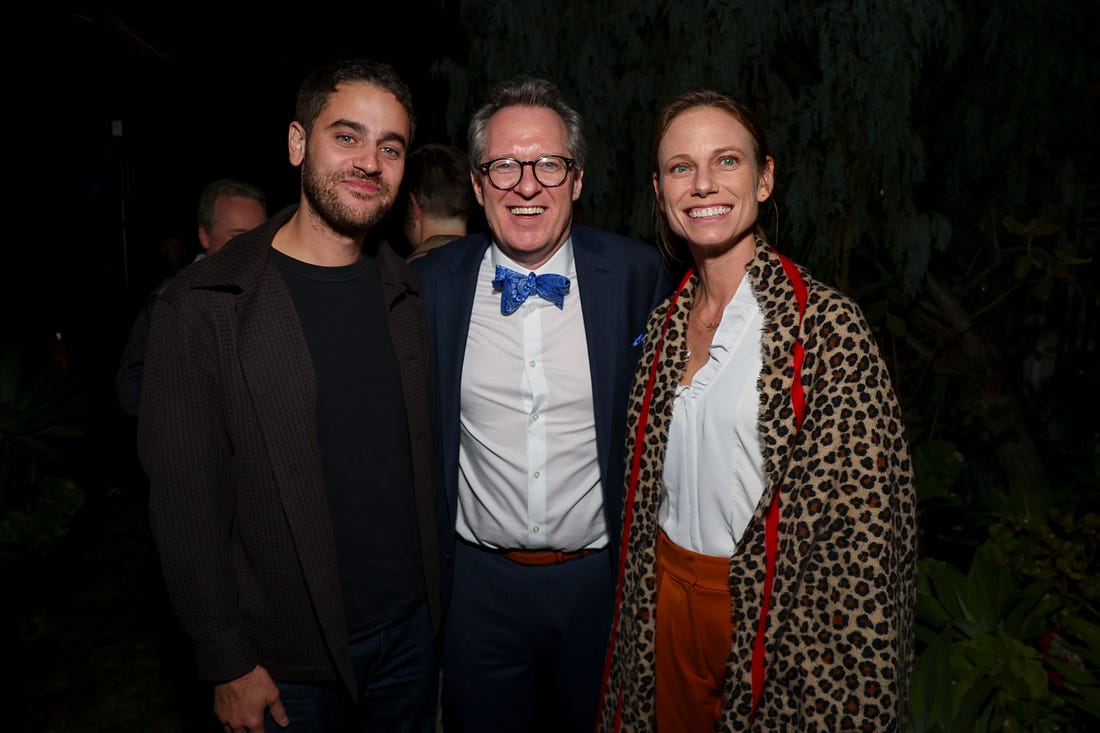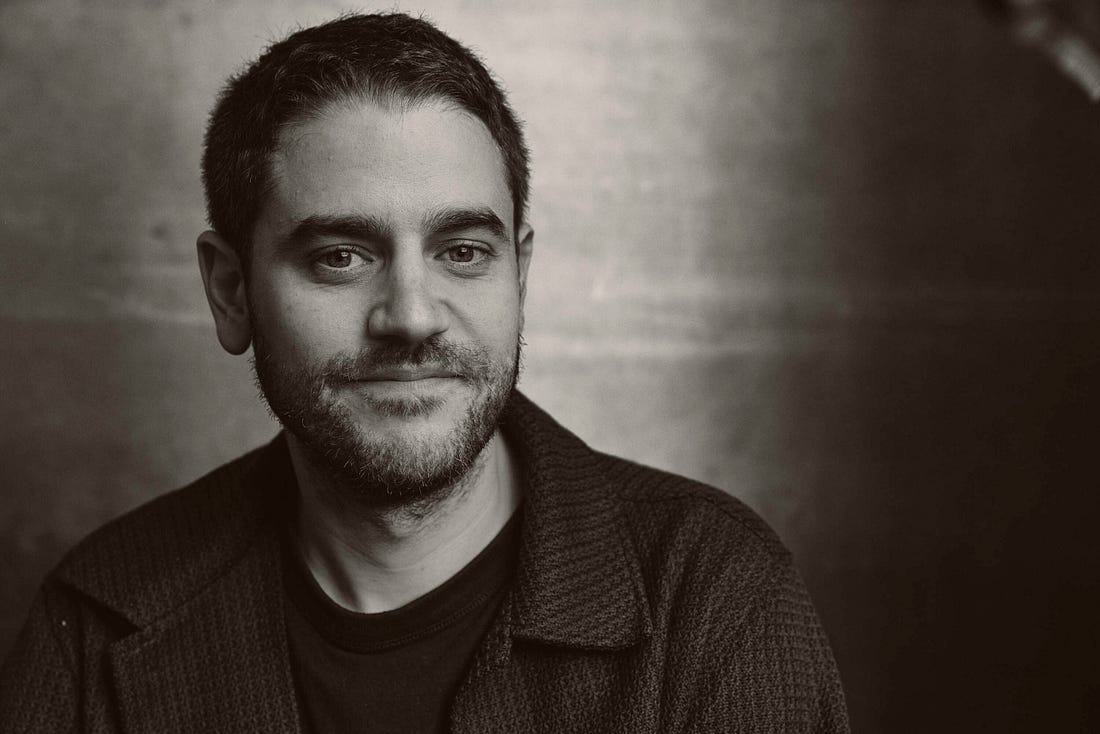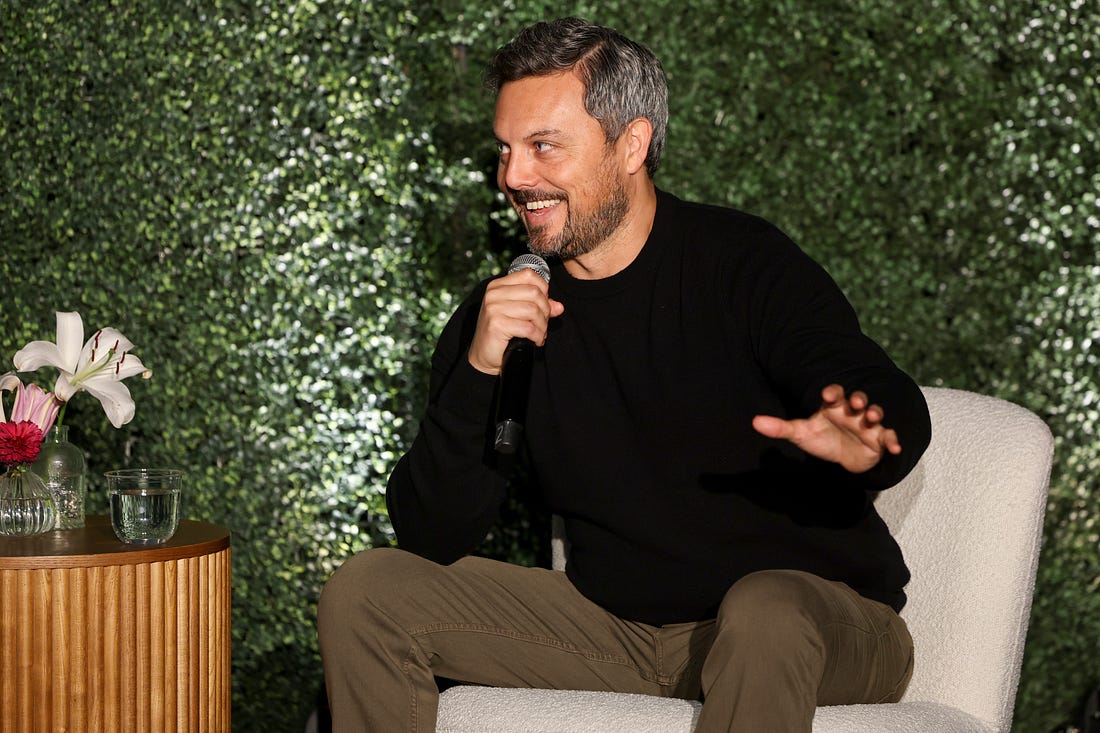Documentary Spotlight L.A.: Triumph, ‘Schadenfreude and Horror’ and Yes, UFOsFrom ‘The Alabama Solution’ to ‘Come See Me in the Good Light’ to ‘The Age of Disclosure,’ the year’s top filmmakers have a lot on their mindAt AnklerEnjoy, the home for post-Ankler Events content, you can watch all of the documentary panels from our starry Oct. 16 event in Los Angeles (and previous Documentary Spotlight events), as well as view photos.
Under the stars at Vista House in the Hollywood Hills, it couldn’t have been a better night for sharp, insightful conversations about some of the year’s best nonfiction films. “Never has the power of fearless storytelling mattered more than right now,” Ankler Media CEO and editor-in-chief Janice Min said during her introductory remarks at Documentary Spotlight on Oct. 16. Hosted by Pure Nonfiction’s Thom Powers and attended by Academy members as well as producers, directors and executives in the documentary space, our latest Documentary Spotlight event — the eighth collaboration between The Ankler and Pure Nonfiction — featured conversations about multiple buzzy titles, including The Alabama Project, The Perfect Neighbor and The Tale of Silyan. Said Min, “We share a mission of celebrating the art of documentary filmmaking and championing the extraordinary storytellers who bring vital, thought-provoking, often challenging narratives to audiences everywhere.” Social Justice: The Alabama Solution, The Perfect Neighbor“I’ve made films in and around the justice system before,” said Andrew Jarecki, the Oscar nominee and Emmy Award winner (for The Jinx), who co-directed HBO’s The Alabama Solution, now streaming on HBO Max, with Charlotte Kaufman. But it wasn’t until Jarecki’s teenage daughter urged him to read a book by Anthony Ray Hinton, who spent 30 years on death row in Alabama for a crime he didn’t commit, that the filmmaker decided to tackle a project about the criminal justice system from the inside. “We went to Alabama, and we were lucky enough to meet somebody who had unique knowledge of the system, and they said, if you’re interested, maybe you should come into the prison,” Jarecki recalled of the early stages of the movie, which took six years to complete. “I said, ‘What would we see?’ And he said, ‘Well, if you go into Holman Prison and you go on the death row, you’ll see it’s a slave ship.’ And that really stayed with me.” Netflix’s The Perfect Neighbor (now streaming) doesn’t take place inside a prison, but it does illustrate the danger of what happens when a carceral culture emboldens citizens to deadly results. Directed by Geeta Gandbhir, the doc focuses on the real story of the 2023 death of Ajike “AJ” Owens, a mother of four who was shot and killed by her neighbor, Susan Lorincz, following months of disagreements between the women over Owens’ children. The project, which debuted at the Sundance Film Festival, tells the tragic story entirely through bodycam footage. “When we saw it, it was like, ‘Wait, what is this? This is playing like a horror film,’” producer Alisa Payne said. “We could make this a horror movie because it was a horror for the community.” Still, Owens is more than just a symbol of a broken system, Payne said. “If Ajike’s mother, Pamela, were here, she would say that her daughter was so vibrant. She was lively. She was a mother,” Payne said. “She worked two jobs so they could go to private school. She was a football mom, she was a cheerleading mom. And because she was a single mom, she wanted more for herself. One of the last conversations that Pam and AJ had, AJ said, ‘You watch one day, the world is going to know my name.’ And so this film is our effort to make sure that the world knows her name and knows what happened to her.” Family Bonds: UnBroken, The Tale of SilyanThe unbreakable connection between family members, no matter the circumstance, also drives the narrative of UnBroken (now streaming on Netflix). Beth Lane’s documentary tells the story of her own family, and how seven sisters (including Lane’s mother) survived the Holocaust with the help of German citizens and then weren’t reunited until four decades later. “In 2017, my mom decided that she wanted to go back to Germany, and we went out to the town where she was hidden, and the town historians hosted us, and they had a surprise for us,” Lane said. “They invited a descendant of the farmers who hid them to come and meet us. It was truly one of those watershed moments when I felt like I was touching the essence of why I’m even alive today. But on top of that, I had always thought of the story through my lens, my family’s lens. And this man was the same age as my brother, a couple of years older. And I realized that if his grandparents had been caught, he wouldn’t be here either. And so it was really the reverse shot that made me truly make a sacred vow to myself that day that I was going to make a movie and I wasn’t going to stop.” Familial connection again is at the heart of The Tale of Silyan (coming to NatGeo later this year), Oscar-nominated filmmaker Tamara Kotevska’s follow-up to Honeyland. Set like the previous film in Macedonia, Silyan focuses on farmers Nicola and Jana, an elderly married couple who are no longer able to keep up their livelihood as farmers due to economic forces in their home country. As Jana moves away to help with their daughter, and their other children also depart for the hope of greener pastures, Nicola stays behind and eventually begins caring for an injured stork. (The film’s title is taken from an old folk tale about a young boy who is turned into a stork after arguing with his father.) “It’s something special when I tell stories from my own country because I really feel the pain and the problems, and I can speak very loudly about these topics and be hurt,” said Kotevska, who discussed the project with her cinematographer, Jean Dakar. “To witness, in a sense, the economic destruction that its own government is doing to its own country, it’s really horrible because — it’s an opinion that we both share with Jean as filmmakers — if you take away the ability of people to produce their own food, that’s the ultimate slavery of humanity. And today, we are losing more and more of this ability to be able to connect with the land, and we are forgetting the knowledge of our ancestors about maintaining this relationship.” Love Stories: Cutting Through Rocks, Come See Me in the Good LightThe personal relationship at the heart of Cutting Through Rocks (out in New York on Nov. 21 and in select theaters on Dec. 5), the new documentary from co-directors Sara Khaki and Mohammadreza Eyni about Sara Shahverdi, the first woman elected to the council in her rural Iranian village, occurred off-camera. Khaki and Eyni, who spent seven years following Shahverdi — a divorced woman and former midwife who pushed against Iran’s conservative government — started the project as friends but are now married. “Yes, we’ve witnessed a lot of traumatic stories as you see in the film,” Eyni said of Cutting Through Rocks, which received the World Cinema Grand Jury Prize at Sundance this year. “I think we needed each other to be in the village, making the film and being intimately close to our main character and sub characters. So we needed each other to talk, find ways and continue. And the persistence came from love. So I had two good reasons to make Cutting Through Rocks: cinema and love.” Love shines bright in Apple’s Come See Me in the Good Light (streaming Nov. 14) from director Ryan White (Pamela, A Love Story, Good Night Oppy). The film tells the story of poets Andrea Gibson and Megan Falley, who turn Gibson’s terminal cancer diagnosis into an expression of resilience and a celebration of life. “Thankfully, they are very open. They were very much unicorn subjects,” said producer Jessica Hargrave, who produced the film with Tig Notaro, among others. “They didn’t take a lot of warming up, and so they were fine with having us in the house. They joked about not having had men in their house forever,” Hargrave added with a chuckle (both director White and the film’s cinematographer, Brandon Somerhalder, are men). “So that was one thing that took some getting used to, but they absolutely adored our team. And so we all became sort of a part of the family.” Gibson died in July, leaving behind a legacy of work (they were appointed as the poet laureate of Colorado in 2023) and love. “I’m still in a bit of disbelief,” Hargrave said. “I asked Ryan the other day, and he feels the same. I don’t know how to process it. In all honesty, I love seeing their face on the screen.” Hargrave said she first watched Come See Me in the Good Light with Falley and got to hold Falley’s hand during the screening. “Meg said she just wanted to reach into the screen and pull Andrea out, and she wanted to go back into this world in which Andrea was still with her,” Hargrave recalled. “And I feel similarly, but there’s a part of me that almost feels like I still can. Meg made a joke recently that Andrea died ‘allegedly,’ because Meg likes to believe that Andrea is still here with all of us. And so I’m choosing to take that path a bit too — that Andrea’s sitting out there with all of you right now.” Starting a Conversation: PredatorsDespite only airing for 20 episodes over three years, it’s hard to overestimate the influence of the Dateline NBC segment To Catch a Predator. “Everyone from the age of 10 to 80 has heard of it,” Predators director David Osit told Thom during an interview alongside the doc’s producer Jamie Gonçalves that was recorded after the Doc Spotlight event. “It had such an enduring impact culturally. When it was first on, I think we were all fascinated — especially people 18, 19, 20 years old — having never seen anything quite like this before, this mix of schadenfreude and horror.” Now 38, Osit funneled his own personal fascination with the show into Predators, the MTV Documentary Films release that reconsiders To Catch a Predator and holds a mirror up to the audience itself and what they actually want from nonfiction storytelling. “A lot of what this film really is about for me is me struggling, at times, with the similarities between me and some of the people whom I feel somewhat critical of? How much are my decisions influenced by making something that’s more palatable to audiences and therefore more entertaining, but it’s still based on the lives of real people?” Osit said. “I’m not saying I’m right or wrong. Still, I am trying to ask questions that the show To Catch a Predator, and many true crime [shows] and documentaries, don’t really ask themselves.” Searching the Skies: The Age of DisclosureFilmmaker Dan Farah spent his childhood in the late 1980s and early ’90s immersed in science fiction, films like Steven Spielberg’s Close Encounters of the Third Kind and E.T. the Extra-Terrestrial and television shows like The X-Files. What stuck with Farah was not just the idea that alien life might exist in the universe, but also a lingering question that took the concept of extra-terrestrials one step further: Does the U.S. government know more about this topic than the public does? “It’s just been a lifelong interest over the years, I’ve read every book on the topic, watched every doc on the subject, and I always wished that a film existed that only interviewed people who have direct knowledge of this topic as a result of working for the U.S. government,” Farah said. “It didn’t exist, so I decided I was going to make it.” The result is Farah’s incendiary new film, The Age of Disclosure, which investigates what Farah calls the “80-year global cover-up of non-human intelligent life and a secret cold war among world powers to reverse-engineer advanced technology of non-human origin.” For the project, out in New York and Los Angeles on Nov. 21 (with a concurrent digital release on Prime Video), Farah interviewed multiple government officials, including Senator Kirsten Gillibrand (D-NY) and former senator and current Secretary of State, Republican lawmaker Marco Rubio. “At a time when we can’t agree on anything, Democrats and Republicans, they were completely aligned on this issue,” Farah said, claiming both Gillibrand and Rubio told him, “I was making the most important film that’s ever been made, seriously.” Got a tip or story pitch? Email tips@theankler.com ICYMI from The AnklerThe Wakeup WGA against Par/WBD Deal, microdramas get new H’wood player Everybody Wants This: Gen Z is Watching for the Songs as the Sexy TV Soundtrack Returns From Taylor Swift to the Beatles to Selena Gomez: The Summer I Turned Pretty to Nobody Wants This are turning curated playlists into chart-toppers Springsteen, Elizabeth Warren & the Last Populists in Hollywood A senator calls out a WBD mega-merger while Bruce sings about America’s soul. So why, Richard Rushfield wonders, does the industry hum along in silence? Supermerger: Inside the Deal That Would Finally Give Netflix a Real Rival Insiders reveal to Lesley Goldberg their excitement over David Ellison’s Paramount-WBD dream: ‘My enemy’s enemy is my friend’ Sora 2 Shook Hollywood. This AI CEO is Helping the Industry ‘Take a F-ing Stand’ Bryn Mooser and co-founder Natasha Lyonne’s Asteria is an AI model safeguarding IP in an era of copyright chaos, reports Erik Barmack Golden Globes Podcast Award Mess Mounts as Top Stars Mull Skipping Race Insiders are skeptical of a $75K sales pitch from sister company Variety for editorial coverage (receipts inside), Like & Subscribe’s Natalie Jarvey reports, and a murky eligibility process Zazpocalypse Now! Who are we even rooting for right now? asks Richard Ad Money Enters the Pitch Room: ‘It’s Clear Where We’re Headed’ In the ‘Skip Ad’ era, producers reveal to Elaine Low how brands are helping budgets cross the finish line and into a greenlight: ‘It’s an answer to our prayers’ The Oscar Puzzle: What Pundits Agree On — and Where Chaos Reigns Our Prestige Junkie pundits on the surprise Frankenstein surge and the deceptive director race Stars Posing with Ponies? The Unexpected Oscar Power of a Regional Film Festival Inside the ground game as Katey Rich hits horsey Middleburg, Va. and Christopher Rosen movied-it-up in Montclair, N.J. 🎬 Rushfield Lunch: Franklin Leonard on the ‘Inevitable’ WBD Sale & Why He Has Hope ‘I’m very much a pessimist by nature and an optimist by practice,’ The Black List founder and CEO tells Richard 🎧 EMERGENCY POD: WBD’s Endgame Era Begins Suitors, stakes, deals and drama — it’s suddenly all on the table 🎧 Zoey Deutch on Playing Jean Seberg in Nouvelle Vague Plus: The movies that went up and down during the regional film festival rush More from Ankler MediaNew from Natalie Jarvey’s creator economy newsletter: How Dancing With the Stars Seduced Gen Z With All the Right Social Moves FAST Times (and Cash) for YouTube Creators Andy Lewis’ latest IP picks: Small-Town Procedurals, Southern Noir & Sex in Suburbia A Speed-y Summer Blockbuster & a Feel-Good Sports Drama for Dads |


